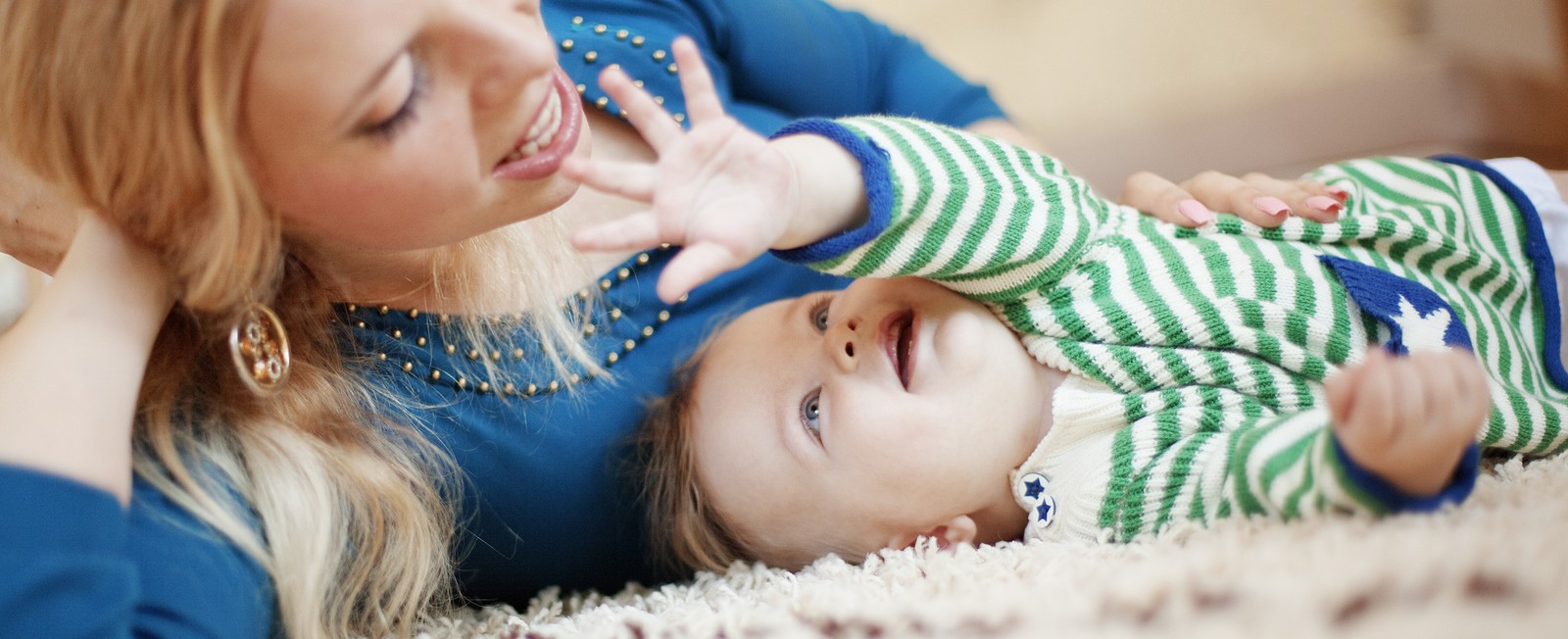When you are concerned about your child’s development, there can be hundreds of questions running through your mind. If you’ve combed through Early Intervention Q&A Archives and you’re still looking for answers, we invite you to Ask a Therapist. Our dedicated Early Intervention Therapists are here for you.
1. How do I know if my child is developing normally or if he or she needs help?
 Every parent wants their child to reach their full potential. When there is a developmental concern it is best to address it as early as possible when a child’s nervous system is still undergoing the most growth and change.
Every parent wants their child to reach their full potential. When there is a developmental concern it is best to address it as early as possible when a child’s nervous system is still undergoing the most growth and change.
Keep in mind that all children develop differently and there is a range of what is considered to be ‘normal’ development. Also, at times it is normal to see a child slow down in one developmental area while they expand skills in another area. For example, it is not unusual to see a child plateau in their development of speech when they are concentrating on improving gross motor skills such as walking. For more information on developmental milestones, click here.
In addition, always talk to your child’s pediatrician regarding any developmental concerns that you have. Keep in mind too, if you are still concerned, you can always seek out an evaluation through your local early intervention program to have your child’s development evaluated for free.
2. What is Early Intervention and how can it help my child?
Early intervention is a group of services for children under the age of 3 provided by occupational therapists, physical therapists, developmental teachers, speech therapists, and consultants specializing in vision or hearing.
These services are provided to children with or without a diagnosis that are experiencing a delay in some area of development for any reason. These services are provided in a child’s ‘most natural environment’ including their home, daycare, or other community settings. For more information on what early intervention is, see our Therapy Options section for an in-depth description of Early Intervention Services. For information on early intervention services provided in your state, see our resource section.
3. How can I play with my child to encourage development?
The early years of a child’s life are a time when the fastest growth and development occurs. Take advantage of daily routines as a time to interact with your child.
For example, during diaper changes encourage eye contact while singing to your child. When shopping with your child, talk about the foods that you see, ask your child questions about them and help them to describe them. Have your child ‘help’ at meal times by letting them do things like put ingredients in a salad, have them help to stir foods. For more tips, see our Parenting Tips section.
4. My child makes eye contact with me, but something about his interactions just seems odd. How can I tell if my child has autism?
In order to diagnose autism, a child needs to be evaluated by a professional such as a developmental pediatrician, pediatric neurologist, child psychologist or psychiatrist.
However, some behaviors associated with autism, besides a decreased amount of eye contact include repetitive behaviors, obsessive or compulsive type behaviors, unexplained strong tantrums, language delays, difficulty or delays in social interactions, sleeping problems, delays in motor development and picky eating. These are some but not all of the behaviors or symptoms that may be seen in children that have a diagnosis somewhere on the autistic spectrum.
Keep in mind that not all children with autism have the exact same characteristics. It is a ‘spectrum’ disorder where children present with different symptoms and varying degrees of severity of each symptom present. Sometimes behavioral differences may be rather mild, and the child may be thought of as ‘eccentric,’ ‘quirky’, or ‘different’.
If you have any concerns that your child may exhibit some of the above behaviors, or other behaviors that are concerning to you, don’t wait to see if it gets better or worse on its own. Talk to your pediatrician about these concerns. Seek out an evaluation by a provider that can diagnose autism, and at the same time, seek out early intervention or other therapeutic evaluations that can provide you with help in working with the difficulties you and your child are experiencing. Studies have shown that the earlier a child on the autistic spectrum receives intervention, the better their functional outcomes are due to the fact that at an early age, a child’s brain is still developing, or flexible. So, most importantly, if you suspect a problem with your child’s development, do not delay in seeking intervention.
5. My baby isn’t mouthing toys, and I’ve been happy that I don’t have to be worried about choking hazards. Someone told me that I should make sure that he does mouth toys. Is that true, and why?
Mouthing toys is actually an important part of infant development. Not only does mouthing toys help a child learn about their environment through one of their senses, it also prepares them to be able to eat foods beyond puree.
When a child is born, their gag reflex is far forward (about the first third) of their tongues. As the child mouths objects, that gag reflex gradually moves back to where it typically should be for adults, on the back third of the tongue. In this way, mouthing toys aids a child in getting used to feeling different textures on their tongues, which will help them adjust to feeling different foods on their tongues. Not only does mouthing affect the gag reflex. When mouthing objects, a baby’s tongue will reflexively follow an object, which helps the tongue develop movement patterns such as moving to the side when things (like food) are placed on the side. If your child is not mouthing toys, starting with massaging their gums with your finger or an Infadent is a good place to start. Encourage your child to bring toys to their mouth to at first feel them on their lips and gradually in their mouths. You can also have a child taste their favorite purees on a bumpy teether. If your child has difficulty tolerating these things, talk to your pediatrician or ask one of our therapists a question for more information.

